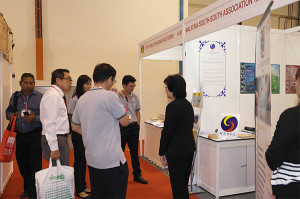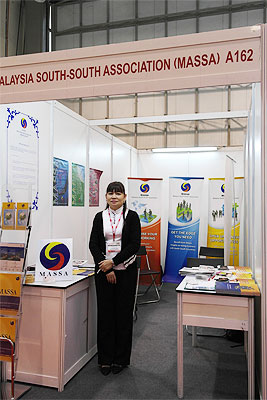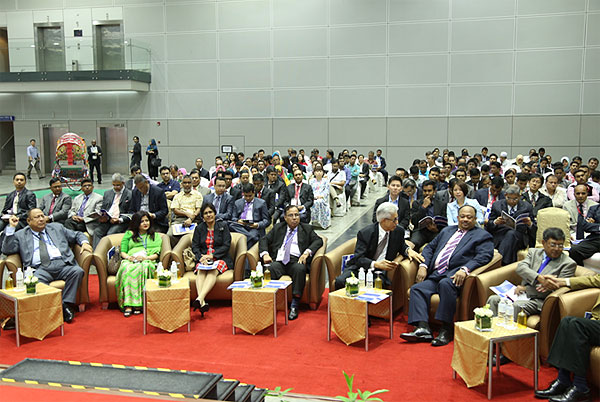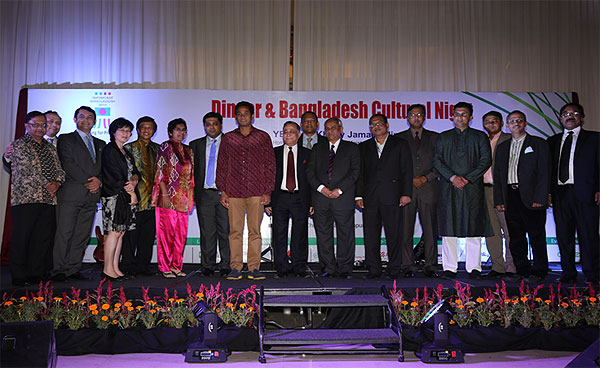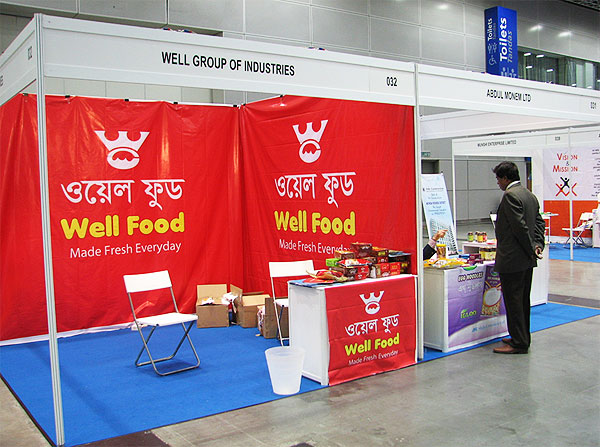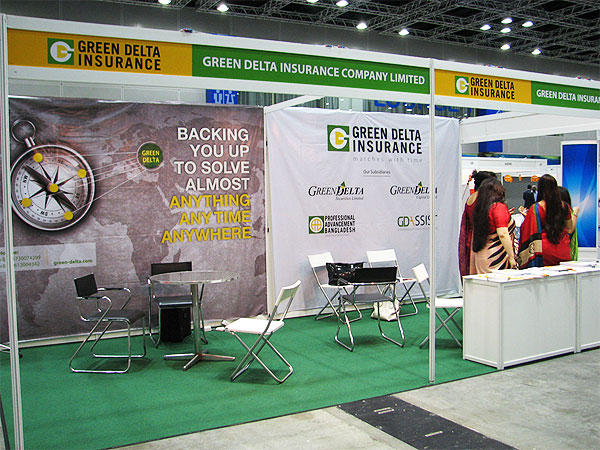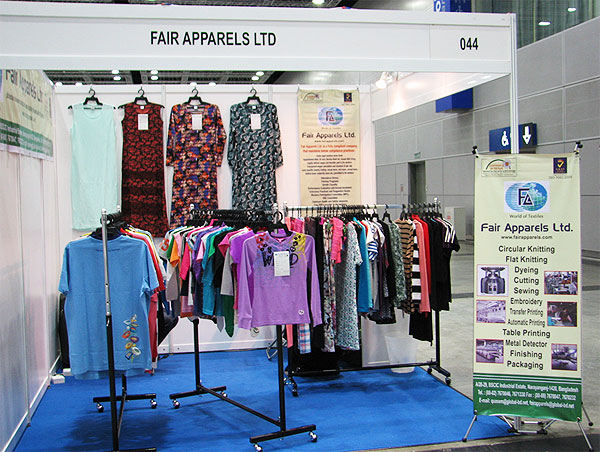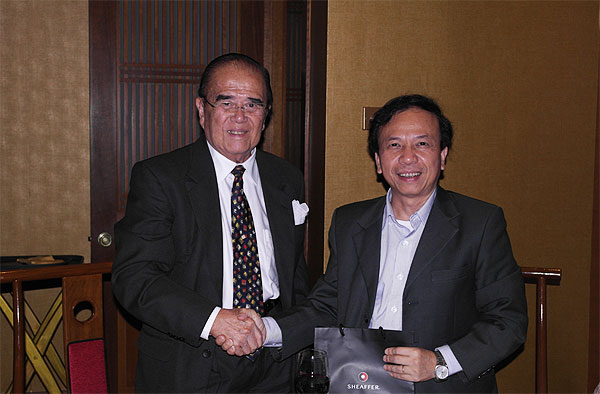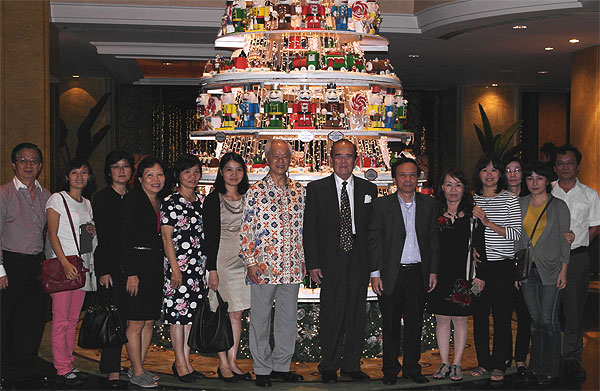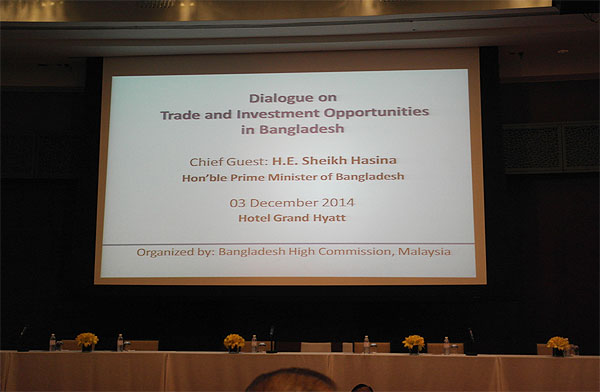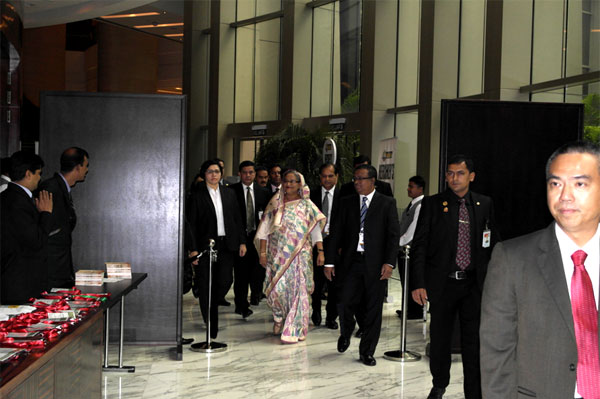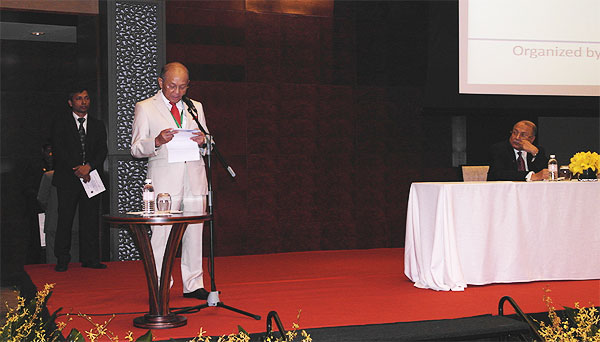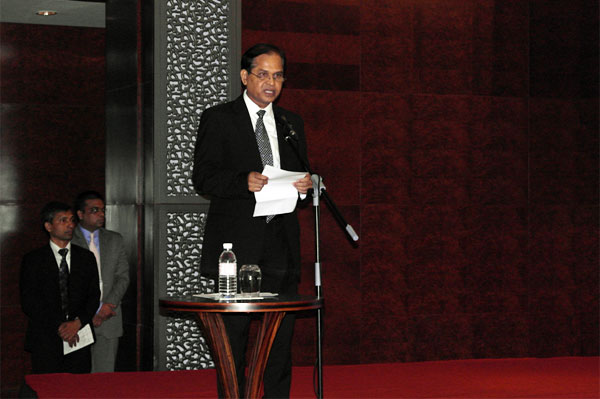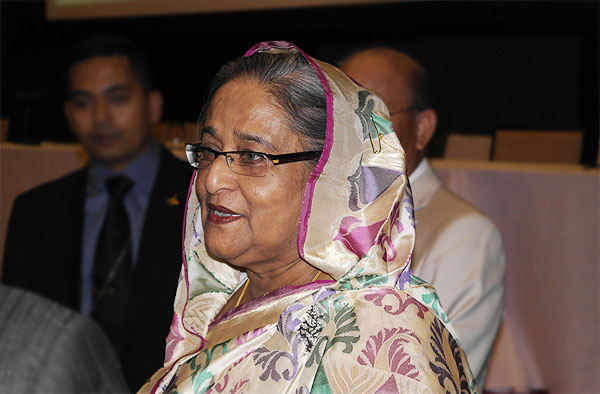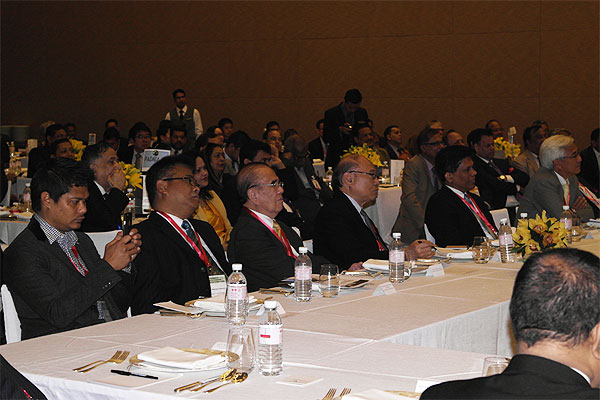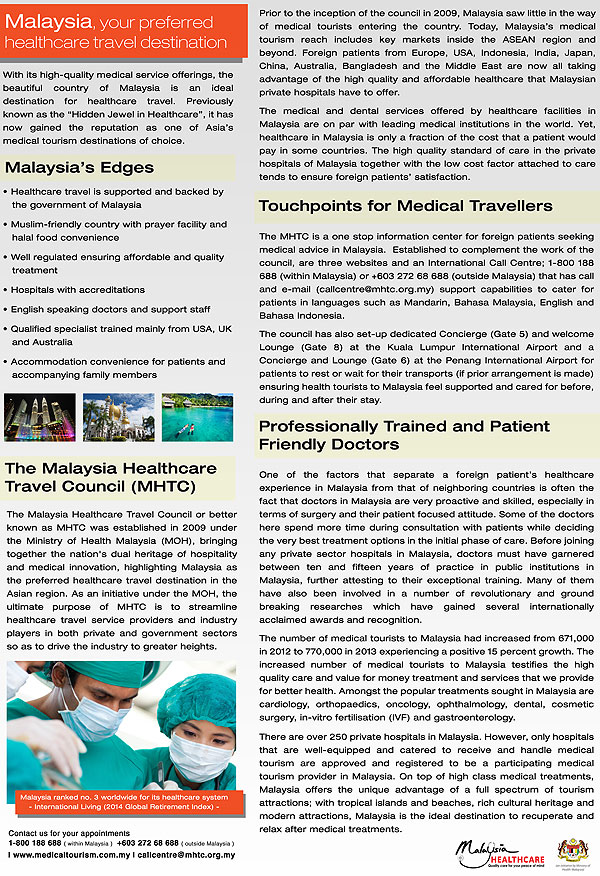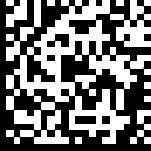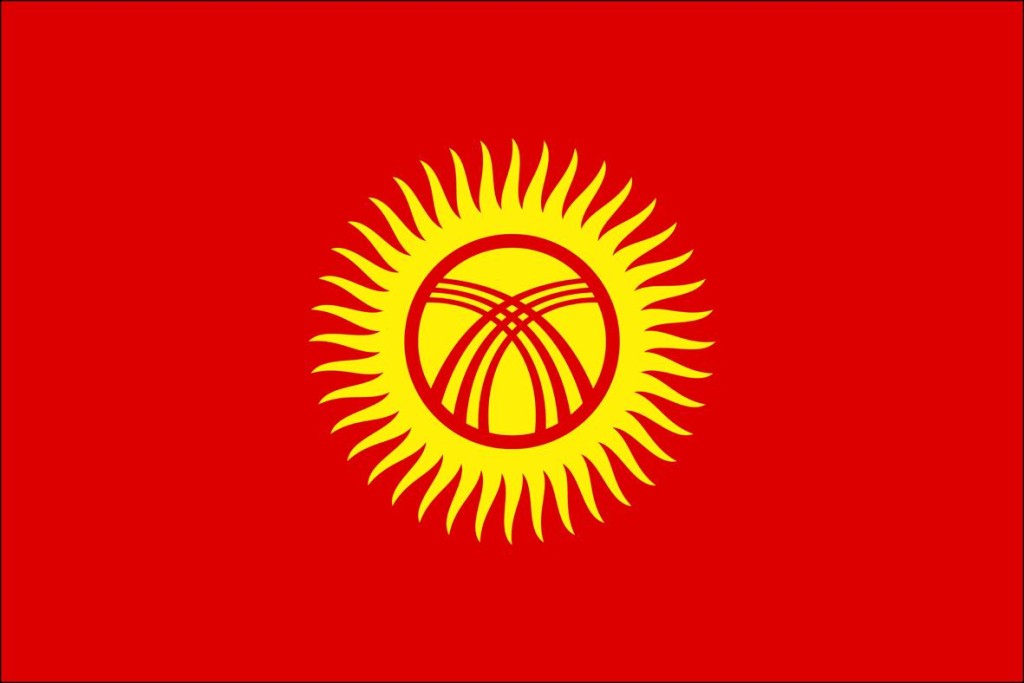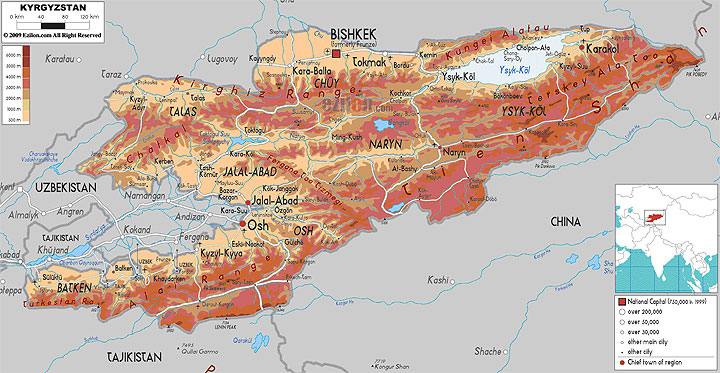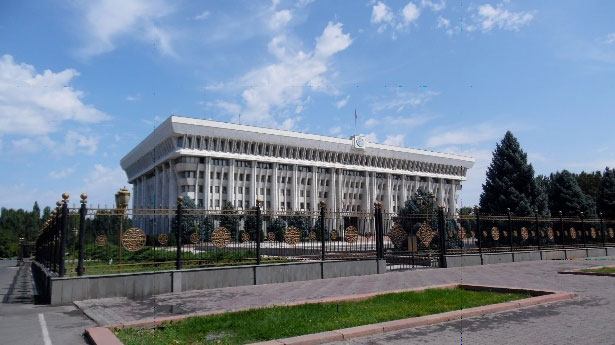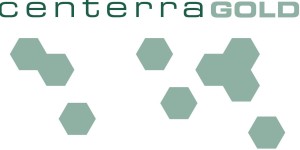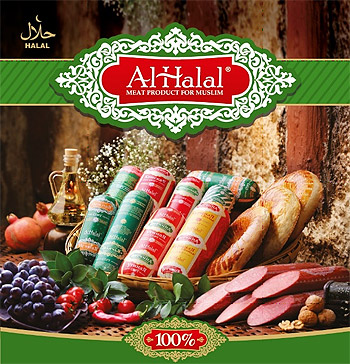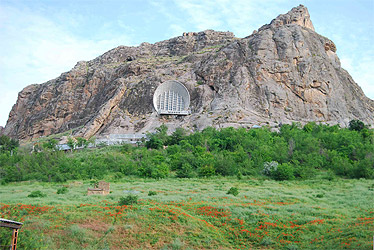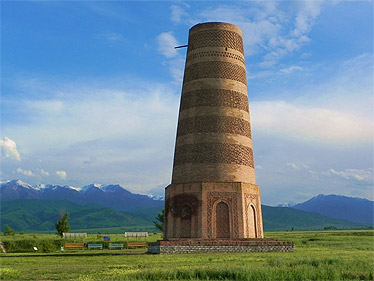President’s Message
Bank Negara Malaysia’s Annual Report 2014 reported that Malaysia’s economy grew at a stronger pace of 6% in 2014 (2013 at 4.7%) driven primarily by the continued strength of domestic demand and supported by an improvement in external trade performance. The recovery of the advance economies and the sustained demand from the regional economies also contributed to Malaysia’s growth.
Despite the challenging external environment, marked by uneven global growth across and within regions, escalating geopolitical risks, the declining prices of oil and other commodities and the uncertainty surrounding monetary policy normalisation in the US, Malaysia’s economy in 2015 is expected to register a steady growth of 4.5% – 5.5%. This growth is expected to be supported by sustained expansion in domestic demand amid strong domestic fundamentals and a resilient export sector.
As we enter the 2nd quarter of 2015, we have yet to see clarity on the economic horizon. Whilst the challenges remain before us, let us continue to stay focussed on building up the core strengths of our businesses, rein in costs and build-up our efficiencies. The changing dynamics of the global and regional situation will offer up opportunities if we stay vigilant.
Since the last global financial crisis (2008-2010) our Malaysian external trade and investments in the South-South Countries have proven to be a valuable sustaining force to power our economy as these emerging markets of the South evidently became new drivers of economic growth.
We want to credit our members for their vision to put their collaborative efforts together to complement and supplement each others’ investment capacities in order to maximise outbound investment efforts multilaterally. Today, we see the fruits of these efforts as many of these emerging markets have become capable investors as well as markets for one another.
We want to thank our development partners in the Government, namely Ministry of International Trade and Industry (MITI) and its agencies, Malaysia External Trade Development Corporation (MATRADE) and Malaysian Investment Development Authority (MIDA) and Ministry of Foreign Affairs (Wisma Putra) for the close cooperation to make available timely information and various support facilitation to make business deals happen.
We also value the relationship with many Embassies and High Commissions of the developing countries that are based in Kuala Lumpur, Malaysia. Your cooperation and support for MASSA have been invaluable to create successful and lasting bonds of business between our private sector.
MASSA also appreciates the continuing support and cooperation of members and also not forgetting our Executive Council members.
Tan Sri Azman Hashim
President
MASSDA Land Company Limited
| MASSDA Land Company Limited |
| About Us: | MASSDA Land is the developer of an Industrial Park and residential houses in Danang, S.R. Vietnam. |
| What We Buy: | – |
| What We Sell: | – |
| Contact: | Mr Y S Lee |
| Job Title: | General Director |
| Location: | Vietnam |
| Industry: | Others |
| Email: | massda@massda.net.vn |
| Website: | – |
Malaysian South-South Corporation Berhad (MASSCORP)
| Malaysian South-South Corporation Berhad (MASSCORP) | |
| About Us: | MASSCORP is a consortium of 85 Malaysian shareholders that acts as a vehicle to promote bilateral trade and investment between Malaysia and South-South Countries (developing countries). MASSCORP plays a catalytic role to initiate and enhance private sector co-operation, foster economic and business linkages, and undertake viable and bankable trade and investment projects in and with partners from the South-South Countries. |
| What We Buy: | – |
| What We Sell: | – |
| Contact: | Ms Ng Su Fun |
| Job Title: | General Manager |
| Location: | Malaysia, Wilayah Persekutuan, Kuala Lumpur |
| Industry: | Others |
| Email: | mssc@masscorp.net.my |
| Website: | www.masscorp.net.my |
Alex
Alex
Forthcoming Events
Forthcoming Events
An Investment and Business delegation from the Kyrgyz Republic will be visiting Kuala Lumpur, Malaysia in the 1st quarter of 2015.
For more information, please contact MASSA Secretariat at Tel: 03-2078 2788 or email: mail@massa.net.my
MASSA Events
INTRADE Malaysia 2014 on 20 to 22 October
@ Menara MATRADE, Kuala Lumpur
Malaysia External Trade Development Corporation (MATRADE) with the support of the Ministry of International Trade and Industry (MITI) organised “INTRADE Malaysia 2014” at Menara MATRADE, Kuala Lumpur.
MASSA participated in “INTRADE Malaysia 2014”.
YAB Tan Sri Dato’ Haji Muhyiddin bin Haji Mohd Yassin, Deputy Prime Minister of Malaysia officiated the Opening of “INTRADE Malaysia 2014” at a dinner on 20 October 2014 follow by a fashion show by top fashion designers from Malaysia.
A total of 412 exhibition booths were taken-up at “INTRADE Malaysia 2014” with 335 booths from 262 Malaysian companies and 77 booths from 25 overseas exhibitors.
25 countries participated in “INTRADE Malaysia 2014”. They were from:-
| 1. | Singapore | 14. | India |
| 2. | Brunei | 15. | Sri Lanka |
| 3. | Cambodia | 16. | Bangladesh |
| 4. | Myanmar | 17. | Pakistan |
| 5. | Thailand | 18. | Turkey |
| 6. | Indonesia | 19. | Ecuador |
| 7. | Philippines | 20. | Mauritius, |
| 8. | Laos | 21. | Algeria |
| 9. | Vietnam | 22. | Jordan |
| 10. | China | 23. | Australia |
| 11. | Japan | 24. | Hong Kong |
| 12. | South Korea | 25. | Spain |
| 13. | Taiwan |
“Lifestyle” was this year’s theme covering 5 sub categories as follow:-
1) Fashion Apparel & Textiles
2) Accessories, Footwear & Jewellery
3) Cosmetics, Toiletries, Health & Wellness
4) Gifts, Souvenirs & Stationery
5) Interiors and Home
Other programmes which ran concurrently during INTRADE Malaysia 2014 were Incoming Buying Mission (IBM) and FTA @ INTRADE.
8,756 visitors visited the 3 days exhibition at Menara INTRADE, Kuala Lumpur.
Courtesy Call by Mr Marcos Bednarski, Minister/
Deputy Chief of Mission of the Embassy of Argentina
in Malaysia on 28 October 2014
Mr Marcos Bednarski, Minister/Deputy Chief of Mission of the Embassy of Argentina in Malaysia visited MASSA’s Secretariat.
Ms Ng Su Fun, Executive Secretary of MASSA met with Mr Marcos to discuss promoting bilateral ties between the two countries and to jointly organise programmes and activities for MASSA members.

(left to right) Ms Florence Khoo, MASSA Secretariat, Ms Ng Su Fun, Executive Secretary of MASSA and Mr Marcos Bednarski, Minister/Deputy Chief of Mission of the Embassy of Argentina in Malaysia
3rd Showcase Bangladesh 2014
on 14 to 16 November 2014
at Kuala Lumpur Convention Centre (KLCC),
Kuala Lumpur
The Bangladesh-Malaysia Chamber of Commerce & Industry (BMCCI) organised the 3rd Showcase Bangladesh 2014 at the Kuala Lumpur Convention Centre (KLCC), Kuala Lumpur.
This 3-day event was supported by Bangladesh High Commission in Malaysia, Malaysia External Trade Development Corporation (MATRADE) and Malaysia South-South Association (MASSA).
This Showcase provided a platform for the business communities of Bangladesh and Malaysia to establish, foster and enhance business linkages and collaborations between the two countries. Besides branding and promotion of Bangladesh, the focus of the event was to highlight and showcase the competencies and potential of Bangladesh as a lucrative business hub. The Inaugural Ceremony of Showcase Bangladesh 2014 was held on 14 November 2014. Hon. YB Dato’ Lee Chee Leong, Deputy Minister of International Trade and Industry (MITI), Malaysia was the Guest of Honour and H.E. A.K.M. Atiqur Rahman, Hon. High Commissioner of the High Commission of the People’s Republic of Bangladesh in Malaysia was the Special Guest at the ceremony.

(At the rostrum) Hon. YB Dato’ Lee Chee Leong, Deputy Minister of International Trade and Industry (MITI), Malaysia delivering an Address at the Inaugural Ceremony of the 3rd Showcase Bangladesh 2014

Cutting the ribbon to signify the Opening of the 3rd Showcase Malaysia 2014 – (left to right) Mr Syed Nurul Islam, Chairman, Organizing Committee, Showcase Bangladesh 2014 and Immediate Past President, BMCCI, H.E. A.K.M. Atiqur Rahman, High Commissioner of Bangladesh to Malaysia, Hon. YB Dato’ Lee Chee Leong, Deputy Minister of International Trade and Industry (MITI), Malaysia, Mr Nasir A. Choudhury, President, BMCCI and Mr Syed Moazzam Hossain, Past President, BMCCI
On 15 November 2015, a Seminar on “Investment Opportunities in Bangladesh” was held.
A “Dinner & Cultural Show” was held on 15 November 2014 at The Royale Chulan, Kuala Lumpur.
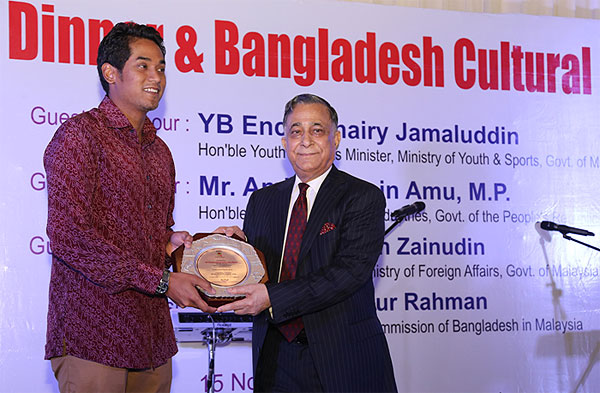
(right) Mr Nasir A. Choudhury, President of BMCCI presenting a crest to the Guest of Honour at the Dinner and Bangladesh Cultural Night to YB Encik Khairy Jamaluddin, Hon. Youth & Sports Minister, Malaysia
A total of 41 exhibition booths were taken-up at the “Showcase Bangladesh 2014”.
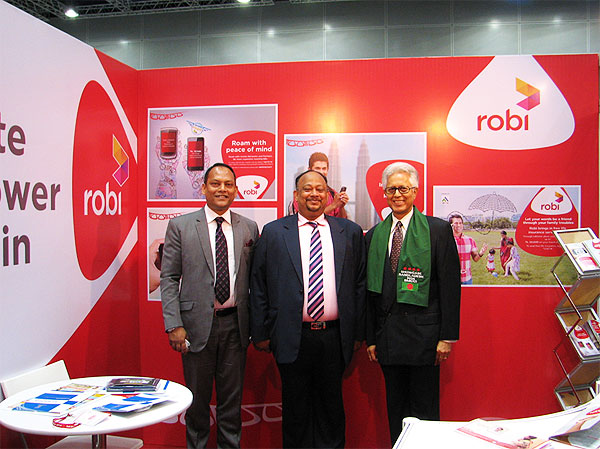
(right) Tan Sri Ghazzali Sheikh Abdul Khalid, EXCO member of MASSA and Independent Non-Executive Director of Axiata Group Berhad at the booth of Robi Axiata Limited
Exhibitors at the exhibition include the following sectors:-
– Banking, insurance and financial services
– Ready made garments, textiles and handicrafts
– Infrastructure
– ICT & Telecommunication
– Education
– Construction
– Food item, Herbal Products
– Jute and Jute products
– PVC and Plastic Household products,
– Consumer products, Cosmetics
– Leather products
– Manufacturer
– Cables, Boards
– Packaging
– Services sectors
One-to-One meetings was organised for Malaysian businessman to meet with the Bangladeshi exhibitors at the event.
Visit of Dr. Vo Duy Khuong, Vice Chairman of
Danang People’s Committee and Chairman of Fund
Management Council, Danang City, Vietnam to Malaysia
on 3 to 7 December 2014
Dr. Vo Duy Khuong, Vice Chairman of Danang People’s Committee and Chairman of Fund Management Council accompanied by his wife, Madam Huynh Thi Thanh visited Malaysia from 3 to 7 December 2014.
Tan Sri Michael Chen Wing Sum, Chairman of MASSDA Land Company Limited and Vice President of MASSA together with Datuk Lim Fung Chee, Board of Management of MASSDA Land Company Limited and EXCO member of MASSA hosted a dinner for Dr. Khuong and his delegation on 3 December 2014.

(left) Tan Sri Michael Chen Wing Sum, Chairman of MASSDA Land Company Limited and Vice President of MASSA and (right) Dr. Vo Duy Khuong, Vice Chairman of Danang People’s Committee and Chairman of Fund Management Council, Danang City, Vietnam
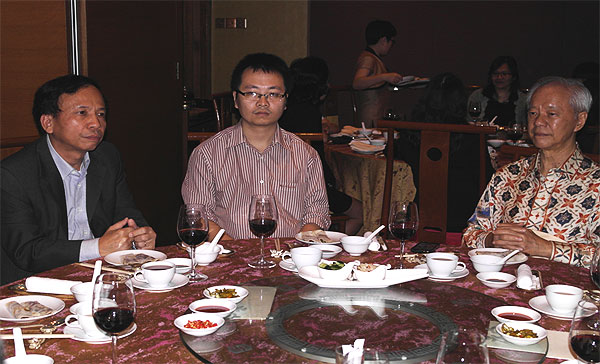
(left to right) Dr. Vo Duy Khuong, Mr Ho Quang Dung and Datuk Lim Fung Chee, Board of Management of MASSDA Land Company Limited and EXCO Member of MASSA

(left) Mr Nguyen Anh Tuan, Deputy General Director and (right) Mtr Nguyen Thanh Tam, both, Board of Management members of MASSDA Land Company Limited
Tan Sri Michael Chen Wing Sum, Chairman of MASSDA Land Company Limited and Vice President of MASSA together with Datuk Lim Fung Chee, Board of Management of MASSDA Land Company Limited and EXCO member of MASSA hosted a dinner for Dr Khuong and his delegation on 3 December 2014. MASSDA Land Company Limited is a subsidiary company of Malaysian South-South Corporation Berhad (MASSCORP) who has successfully developed an Industrial Park and a housing project in Danang City.
Dr. Khuong also visited Tan Chong Group’s assembly plant in Serendah, Selangor.

(Front row, from left to right) Mr Kelvin Foo Check Tuann – General Manager, Production & Logistic, TCMA, Ms Truong Thi Thuy, Mr Robin Chong Siong Lek, Deputy General Manager, Quality, TCMA, Mr Lee Yai Sin, General Director of MASSDA Land Company Limited, Dr. Vo Duy Khuong, Ms Cindy Lim Sew Chan, Head of TCMA Plant Operations, Mr Nguyen Thanh Tam, Mr Patrick Foong Kaye Ying, Director, TCIE, Col. Ho Wah Juan, Senior Consultant, TCMSC and Mr Roslan Ahmad, General Manager, Production, TCMA
Tan Chong Group has an auto assembly plant in Danang City, Vietnam. TCIE Vietnam Pted. Ltd. a wholly owned subsidiary of Tan Chong Group officially launched on 11 June 2013. Built at a cost of USD40 million, the state-of-the art facility is located at the expanded Hoa Khanh Industrial Zone. The plant is the first of Tan Chong’s overseas plant with two other assembly plants located in Malaysia.
Dialogue Session with H.E. Sheikh Hasina,
Hon. Prime Minister of Bangladesh on 3 December 2014
at Grand Hyatt Hotel, Kuala Lumpur
Her Excellency Sheikh Hasina, Hon. Prime Minister of Bangladesh made an official visit to Malaysia from 2 to 4 December 2014. Her delegation comprised of 85 Government and business leaders that included 5 Ministers,
1. H.E. Khandker Mosharraf Hossain, Hon’ble Minister for Expatriates Welfare & Overseas Employment
2. H.E. Mr. Muhammad Farud Khan, Hon’ble Minister for Civil Aviation & Tourism
3. H.E. Mr. Abul Hassan Mahmood Ali, Hon’ble Foreign Minister
4. H.E. Mr. Asaduzzaman Noor, Hon’ble Minister for Cultural Affairs
5. H.E. Mr. Asaduzzaman Khan, Hon’ble State Minister for Home Affairs
The private sector delegation was led by Mr Kazi Akram Uddin Ahmed, President of The Federation of Bangladesh Chambers of Commerce And Industry (FBCCI).
This visit is Her Excellency’s second official visit to Malaysia with the first being in May 2010. Her Excellency’s visit has provided a new impetus to cement and elevate Malaysia Bangladesh relations.
Bangladesh is Malaysia 3rd largest trading partner among South Asian countries. As at September 2014, Malaysia’s trade with Bangladesh was valued at RM3.43 billion with imports amounting to RM284.1 billion and exports, RM3.17 billion.
Malaysia’s exports to Bangladesh include commodities like palm oil, textiles and clothing, chemicals and chemical products, electrical and electronic products, non-metallic mineral products, as well as iron and steel products.
Bangladesh’s imports to Malaysia include camera parts, jute products, knitwear, home textiles, crabs, woven garments, frozen fish, shrimp and polyvinyl chloride bags.
In conjunction with Her Excellency’s visit, the Bangladesh High Commission in Kuala Lumpur hosted a dialogue session for the private sector. MASSA President, Tan Sri Azman Hashim gave a Welcome Address and moderated the Q & A session with H.E. Prime Minister.

(3rd from left) H.E. Sheikh Hasina, Hon. Prime Minister of Bangladesh, Tan Sri Azman Hashim, President of MASSA, Hon. Datuk Seri Utama S. Samy Vellu, Special Envoy to India and South Asia and H.E. A.K.M. Atiqur Rahman, High Commissioner of Bangladesh to Malaysia

(3rd from left) H.E. Sheikh Hasina, Hon. Prime Minister of Bangladesh answering enquiries from participants at the Q & A session

(left to right) Tan Sri Ghazzali Sheikh Abdul Khalid, EXCO Member of MASSA having a word with Tan Sri Azman Hashim, President of MASSA

(left to right) Tan Sri Michael Chen Wing Sum, Vice President of MASSA, Tan Sri Mustafa Mansoor, Chairman, Malaysia Standards & Accreditation Council and Hon. Datuk Seri Utama S. Samy Vellu, Special Envoy to India and South Asia
Malaysia is one of the largest investors in Bangladesh todate, with the involvement of leading Malaysian companies in sectors such as telecommunications, healthcare, power & energy sector and infrastructure & construction.
GS1 Malaysia – GS1 DataMatrix
Overview
GS1 is a neutral and leading global organisation dedicated to the design and implementation of global standards and solutions to improve the efficiency & visibility of the supply and demand chains globally and across sectors. The GS1 system of standards is the most widely used supply chain standards system in the world. The GS1 System was introduced in Malaysia in 1988. GS1 Malaysia was formed under the aegis of FMM to manage and develop the GS1 standards in Malaysia. The subscribers of GS1 System under GS1 Malaysia comprised of manufacturers, distributors, traders, wholesalers, retailers, statutory bodies, IT suppliers and systems providers.
GS1 DataMatrix
The barcode is the key to product information. Every scan facilitates the speedy retrieval and accurate transmission of information. The GS1 System of standardised item identification and bar coding provide a framework that allows products, services and information to move efficiently for the benefit of businesses and the improvement of people’s lives, everyday, everywhere.
The use of GS1 barcodes have progressed and expanded over the years and its application is no longer just for grocery products. Sectors such as healthcare, defence, telecommunication and agricultural are also using the GS1 System of item identification and bar codes.
Today, more than 1.5 million companies in 150 countries across all industry sectors use the GS1 standards in their daily communications. This represents a total of over 6 billion scanning transactions a day!
With the widespread application of the GS1 standards, there is a need for a new barcode symbology that can cater to the needs of industries that require additional information on the labels but are constrained by space.
With this in mind, GS1 has come up with the DataMatrix which is a two dimensional (2D) bar code which can encode more information but using a smaller space. The GS1 DataMatrix is a 2D bar code symbol specified for use by the GS1 System.
The GS1 DataMatrix can holds large amounts of data in a relatively small space as compared to traditional linear barcodes, and is therefore becoming increasingly popular for a wide range of applications including aerospace, pharmaceutical, U.S.A. Department of Defense, and medical device manufacturing.
GS1 DataMatrix barcodes are also used on trade items that have limited space for product marking such as healthcare items not intended to pass through retail point-of-sale (POS) and for parts that need to be tracked in a manufacturing process. Only camera based scanners (2D imagers) can read and decode GS1 DataMatrix barcodes. In addition to their relatively small size, GS1 DataMatrix barcodes utilize sophisticated error correction algorithms to compensate for lost of missing data or code damage. This means that print quality and contrast are much less critical than with traditional linear barcodes. With error correction, GS1 DataMatrix barcodes can reconstruct up to 20% of damaged characters, while traditional barcodes have no error correction capabilities.
GS1 DataMatrix barcodes are suitable for nearly all printing processes from offset to thermal transfer, and even direct marking by ink-jet or laser. The symbol offers readability even with low contrast, and is readable in a 360 degree orientation.
GS1 Malaysia Wisma FMM No. 3, Persiaran Dagang, PJU 9 Bandar Sri Damansara 52200 Kuala Lumpur Tel: 603-6286 7200 Fax: 603-6274 1266 / 6274 7288 Email: gs1malaysia@gs1my.org Website: www.gs1my.org
Country Feature : Kyrgyz Republic
THE KYRGYZ REPUBLIC
BASIC INFORMATION
| Capital : | Bishkek |
| Official languages : | Kyrgyz (national), Russian (official) |
| Type of Government : | Parliamentary |
| President: | Almazbek Atambaev |
| Prime Minister: | Djoomart Otorbaev |
| Independence from USSR: | Aug 31, 1991 |
| Climate: | Continental, from -40 degrees in winter to +40 in summer |
| Land Area : | 198,400 Square Kilometers; borders China, Tajikistan, Uzbekistan, Kazakhstan. 94.2% of land is at an altitude of over 1000 meters above sea level 40.8% above 3000 meters |
| Population : | 5.776 million (2013) |
| People: | The Kyrgyz, a Sunni Muslim, Turkic-speaking pastoral people, constitute 72,6% of the population; the rest are Uzbeks (14,5%), Russians (6,4%), and other minorities (6,5%). The Uzbeks reside largely in the southwest |
| Currency: | KGS (Kyrgyz Som) |
| GDP (nominal): | $7.226 billion (2013) |
| Exports: | $2.019 billion (2013); $1.927 billion (2012) |
| Gold, cotton, wool, garments, meat, tobacco; mercury, uranium, electricity; machinery; shoes
Kazakhstan 26.2%, Uzbekistan 26.1%, Russia 14.6%, China 7%, UAE 6.1%, Afghanistan 5.2% (2012) |
|
| Imports: | $6.069 billion (2013); $5.576 billion (2012)
Oil and gas, machinery and equipment, chemicals, food China 55.2%, Russia 17.4%, Kazakhstan 7.9% (2012) |
ECONOMY OVERVIEW
Since independence in 1991, the Kyrgyz Republic, with assistance of donors such as the World Bank and Asian Development Bank, has progressively adopted an open trade and investment regime. It was the first Commonwealth of Independent States to be accepted into the World Trade Organization. A recent OECD Regulatory Restrictiveness Index, a way to measure discriminatory policies against foreign investors, puts Kyrgyzstan in close to the OECD average on the index, much better than its neighbor, Kazakhstan.
Kyrgyzstan is a mountainous area bordering Uzbekistan, Kazakhstan, China and Tajikistan. The country is rich in agriculture resources with products such as sheep, goats, cattle, and horses, cotton, tobacco, potatoes, sugar beets, vegetables, grapes, fruits, and berries are grown;
It has deposits of gold, rare earth metals, coal, oil, natural gas, nepheline, mercury, bismuth, lead, zinc, and uranium. Industries include food processing, nonferrous metallurgy, forestry, and the manufacture of apparel and textiles, agricultural machinery, appliances, furniture, and electric motors. In addition, the country is also noted for such traditional handicrafts as woodcarving, carpet weaving, and jewelry making.
• 60 gold deposits explored
• 7 deposits of antimony and 3 major deposits of tin and tungsten
• Coking coal projected reserves are 260 million tons
• 15 oil and gas fields developed
Abundant water supply provides 53% of energy resource, with the country exporting power to its neighboring countries. The hydropower industry has a potential of 142 billion KWh.
Many citizens work abroad, especially in Kazakhstan and Russia, and their remittances are important to Kyrgyzstan’s economy, representing 24.8 % of GNP in 2013.
Just recently, the government signed an agreement to join the Eurasian Customs Union, composed of the economies of Russia, Belarus and Kazakhstan. The combined economies represent a $ 2.393 trillion GDP and Kyrgyz Republic is positioning itself as the destination of choice for foreign investors interested in establishing a presence in the Eurasian Customs Union.
Malaysian Exports to Kyrgyz Republic
Trade Data from 2013 shows Malaysian exports to Kyrgyz Republic representing electrical and electronic equipment, palm oil, furniture, cocoa products, soaps, lubricants, and rubber.
Malaysian Imports from Kyrgyz Republic
Trade Data from 2013 shows Malaysian imports from Kyrgyz representing precious stones, metals, coins, electrical and electronic equipment, machinery, honey.
Kyrgyz Republic has opportunities on being potential supplier for Malaysia on the following products:
• fruits and vegetables
• meat and meat products
• dairy products and honey
• clothing goods and apparels
• bottled potable water
Foreign Direct Investment
Foreign direct investment has steadily increased reaching $1 billion in 2013 from around $600 million in 2012. Investments are primarily in extractive industries such as mining and energy although investments in manufacturing such as metal fabrication as well as food and textile processing have increased. Canada followed by China, UK and Germany are the main sources of foreign direct investment.
Current Investments in the Kyrgyz Republic
Centerra Gold is one of the largest gold mining companies in the world.
Russian Oil Company Gazpromneft Asia Ltd is the largest operator at wholesale and retail markets of oil products and liquefied hydrocarbon.
Kazakhmys Gold Kyrgystan, a subsidiary company of Kaz Minerals, a global copper mining company.
“Coca-Cola bottlers” produces and distributes carbonated soft drinks and bottled water.
Hyatt Regency Bishkek is the leading five-star hotel in the country.
Beeline, a subsidiary company of Vimpelcom Ltd., Netherlands, is a leading mobile operator.
Demir Kyrgyz International Bank is the first international bank, owned by Turkish and European investors.
Russian conglomerate Wimm Bill Dann, owned by PepsiCo of the US, manufactures dairy products and infant food.
Beta Group is Turkish conglomerate with investments in a tea-packing factory and shopping malls.
Dairy Spring is the producer of cheese products with initial investments from a Swiss company.
LSC “Avinien”
Korean conglomerate Pohang Iron and Steel (POSCO) and National Center on Complex Processing of Mineral Raw Materials of the Republic of Kazakhstan are currently building a plant to process aluminium ferrosilicon.
5 Reasons to invest to the Kyrgyz Republic
• Strategic location in the Central Asia – next door to China, world’s second largest economy
• Tax – lowest in Central Asia
• Skilled but inexpensive labor force – in 2013, average monthly salary was USD235
• Free Economic Zones – in 2012, turnover was USD347 million
• Inexpensive electricity – abundant water resources for hydropower energy
Private Public Partnerships
As reflected in the National Strategy for Sustainable Development 2013 -2017 the Government of the Kyrgyz Republic aspires to increasingly apply Public Private Partnerships (PPP) to deliver public infrastructure projects and related services. This strategy is driven by the need to improve the quality of infrastructure and the government’s limited budgetary resources. A PPP Law and related institutional set-up has been adopted in 2012 to facilitate the development of PPP and in 2014 a Project Development Support Fund has been established aimed financing project preparation and advisory services.
Noorizah Binti Hj Abd Hamid, Managing Director, PLUS Expressways, Malaysia, presented Malaysia’s experience in developing and implementing roads/highway sector PPP projects at the ‘High-level Forum on Public-Private Partnerships (PPPs)’, organized by the Kyrgyz Government from 23-24 May 2013 in Bishkek.
As of November 2014, some 15 projects are under preparation. This project pipeline includes among others specific health care services and medical facilities, roads, mini hydropower plants, energy distribution. Some of these projects are expected to be tendered in 2015.
Halal Industry
With Muslims representing 80% of the Kyrgyz population, the government is promoting the halal business, which is still at its infancy. The Ministry of Economy prepared a strategy paper outlining the steps to expand the Halal industry not just for the domestic but also for the export market.
The country needs assistance in upgrading its infrastructure such as slaughterhouses and laboratories as well as the technical knowledge of veterinarians and inspectors to comply with international standards for Halal. Qatar and Saudi Arabia have discussed possible areas of cooperation with Kyrgyz Republic to modernize and expand its halal business.
Islamic Banking and Finance
In May 2006 Islamic Development Bank (IDB), the Kyrgyz Republic and OJSC “EcoBank” signed a Memorandum of Understanding to introduce Islamic banking and finance to the Kyrgyz Republic.
“EcoIslamicBank” is the first and the only Islamic bank in the Kyrgyz Republic. It has played a leading role in promoting the Shariah-based financial products and services to the Kyrgyzstan market.
The National Bank of the Kyrgyz Republic has approved the following contracts: Mudharabah, Sharikat and Musharakah, Murabaha, Isaiah and Ijarah Muntahia Bittamleek, Qard Hasan, Istisnaa and Parallel Istisnaa, Salam, Wadiah Dhamanah and Wadiah Yad Amanah.
Kyrgyz Republic encourages the expansion of Islamic banking and financial instruments. It is the process of introducing Sukuk and Takaful to the financial market.
Tourism
Kyrgyz Republic is an amazingly beautiful country; enclosed by mountain ranges, glaciers and fresh water lakes. The country’s nomadic history is a blend of about eighty different cultures, intermingling for centuries, laying the foundation for a dynamic and vibrant society.
• More than 3 million visitors a year
• Issyk Kul Lake- second largest alpine lake in the world
• Silk Road cultural and historical sites
• Pristine mountains, lakes
• Wildlife such as the snow leopard, eagles, mountain goats, horses
Islamic Heritage Sites
Sulaiman Too Sacred Mountain
Sulaiman- Solomon’s Mountain is a 1000 meters high rocky spur of Alay mountain range. It is surrounded by Kyrgyzstan’s second largest city Osh and was a major place of pilgrimage in the Central Asia for Muslims as well as pre-Muslims. The mount located in the vast plains of the Fergana Valley, acted as a beacon for caravans on the Silk Route and was revered as a sacred mountain. Some historians are of the opinion that the peak of the mount is tower and the main signpost of the Silk Road described by the Ptolemeus. Its five peaks and slopes contain numerous ancient places of worship and caves with petroglyphs as well as two largely reconstructed 16th century mosques. For many Muslims of the region it is the most sacred place after Holy cities of Makkah, Medinah and Jerusalem.
In June 2009, it became the first site in Kyrgyzstan to be included in the UNESCO World Heritage Site. According to its report, “The site is believed to represent the most complete example of a sacred mountain anywhere in Central Asia, worshipped over several millennia.”
Burana Tower
The name “Burana” most probably comes from wrongly pronounced word “Monara” which means Minaret. Minaret is an obligated part of any mosque, it is a tower from which the Muslims were called up for the next praying. Some centuries ago, the tower was 44 meters high, but after an earthquake in early 1900, the upper part fell down.
The tower and a mosque were located in the city center of Balasagyn town – one of the centers of Karahanid state. The large area around the town was enclosed with 2 rows of fence, that still visible from the top of the tower. Nowadays there is a small museum of Burana, represented with the tower, the remains of three tomb mausoleums, and other exhibits, such us: stone sculpture – Balbals, petroglyphs, coins and other things founded during scientific explorations.
For more information on business opportunities in Kyrgyzstan, please contact Mr Syrgzak Abakirov at syrgak.a@gmail.com or go to www.invest.gov.kg
An Investment and Business delegation from the Kyrgyz Republic will be visiting Kuala Lumpur in the 1st quarter of 2015
An Investment and Business delegation from the Kyrgyz Republic will be visiting Kuala Lumpur in the 1st quarter of 2015. For more information, please contact MASSA Secretariat at Tel: 03-2078 3788 / Email: mail@massa.net.my
Contact Details of Embassy of the Kyrgzy Republic in Kuala Lumpur, Malaysia
Contact Person: Mr Ulan Djusupov Charge d’Affaires a.i Embassy of the Kyrgyz Republic 10th Floor, Wisma Sin Heap Lee 346, Jalan Tun Razak 50400 Kuala Lumpur Tel: 603-2163 2012 / 2164 9862 Fax: 603-2163 2024 Email: kgembassymy@gmail.com , info@kgembassymy.com Website: www.kgembassymy.com
Editorial
We bid farewell to 2014, after a tumultuous year of global events that have created much tension and anxieties… middle east conflict, ebola threat, environment disasters, financial uncertainties, declining oil prices and the loss of our Malaysian airline jet planes. These have invariably taken a toll and have contagion effects on our businesses. Nevertheless, the reason for hope, new beginnings and opportunities will always come around.
For the last quarter of 2014, we give members and readers an update on the 8th edition of INTRADE on their event held on 20 – 22 October 2014. This event is MATRADE’s highlight event of the year and the Malaysian lifestyle and fashion have been given a new focus. The response has been encouraging and promising.
The Prime Minister of Bangladesh, Hon. Sheikh Hasina made an official visit to Malaysia, soon after Showcase Bangladesh 2014 ended successfully on 3 December 2014. The Hon. Prime Minister was accompanied by an 85 member delegation comprising senior Ministers of her Cabinet together with leading Bangladesh business people. The business dialogue session with Hon. Prime Minister, was chaired by MASSA President, Tan Sri Azman Hashim. A strong crowd of Malaysian investors in Bangladesh was present at the dialogue. Many pertinent issues were raised and the Hon. Prime Minister gave her assurance to provide a conducive environment for bilateral ties between the 2 countries to continue to flourish.
MASSA also received a distinguished visitor namely, Mr Marcos Bednarski, Minister/ Deputy Chief of Mission of Embassy of Argentina in Malaysia. MASSA also hosted the visit of H.E. Dr. Vo Duy Khuong, Vice Chairman of Danang People Committee of Danang City, Vietnam to Malaysia.
We feature Kyrgyz Republic in this edition. A country with much potential for business in many areas, especially in the halal manufacturing business and services sector. This country has rich agricultural resources that would benefit from good processing technologies to value add its produce. It has also deposits of gold, rare earth metals and coal that could be further explored. MASSA is looking forward to receiving a business delegation from Kyrgyz Republic in the 1st quarter of 2015.
We in the editorial team take this opportunity to thank all our members, associates, sponsors and contributions, for assisting us in the publication of our e-newsletters throughout 2014. Let’s continue our collaborations to mutually strengthen the South-South platform.
We wish all members and readers “Season’s Greetings” and a fruitful New Year.
Fatimah Sulaiman
Editor




